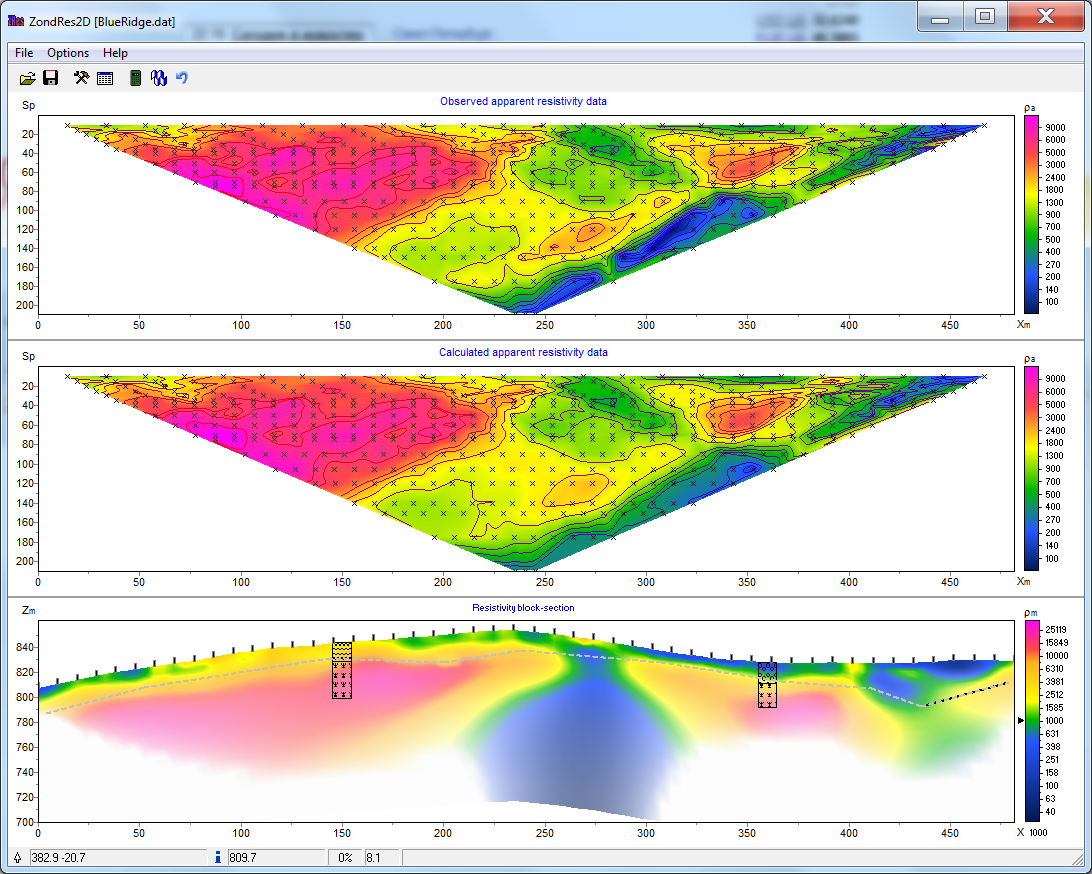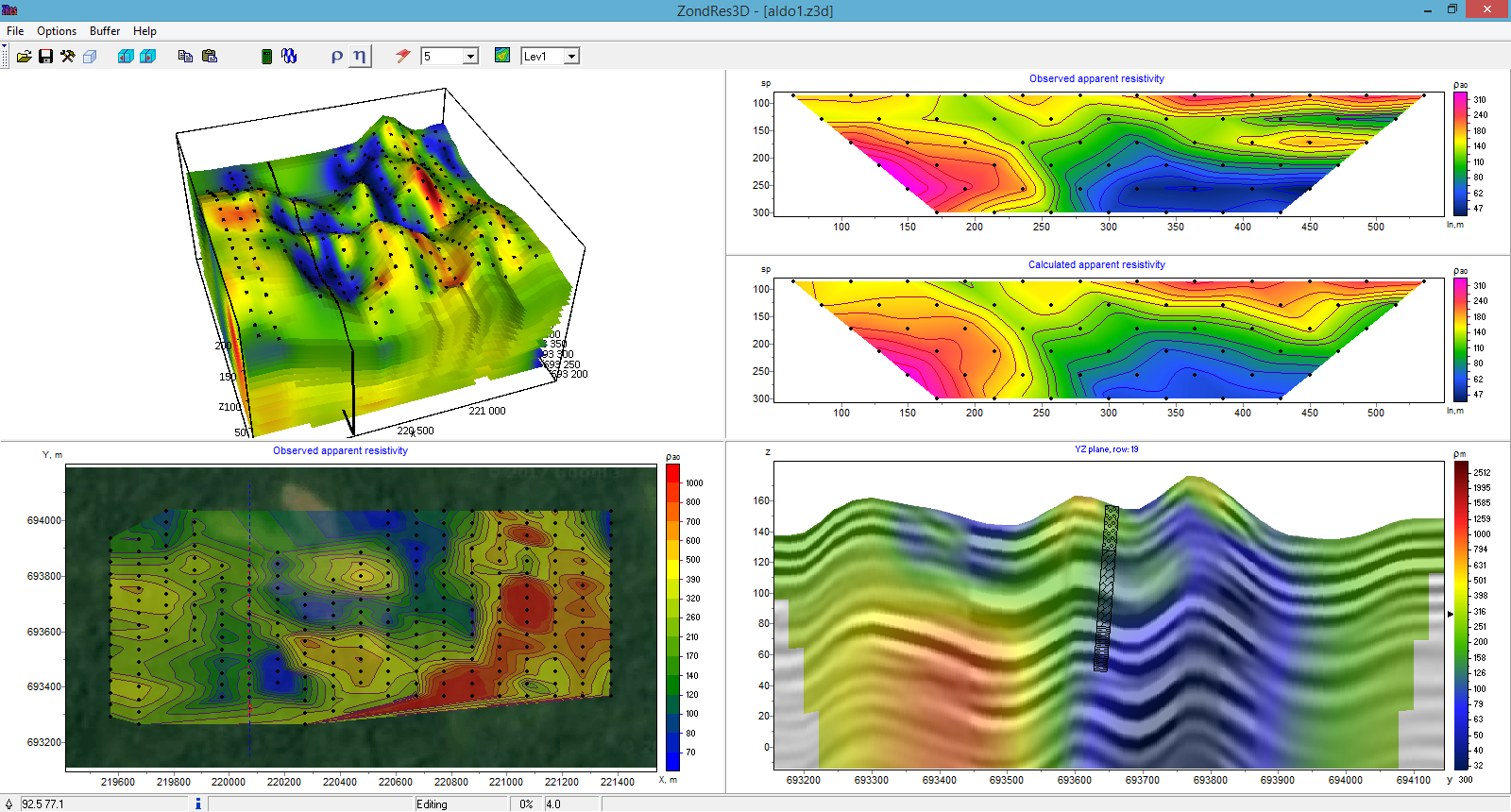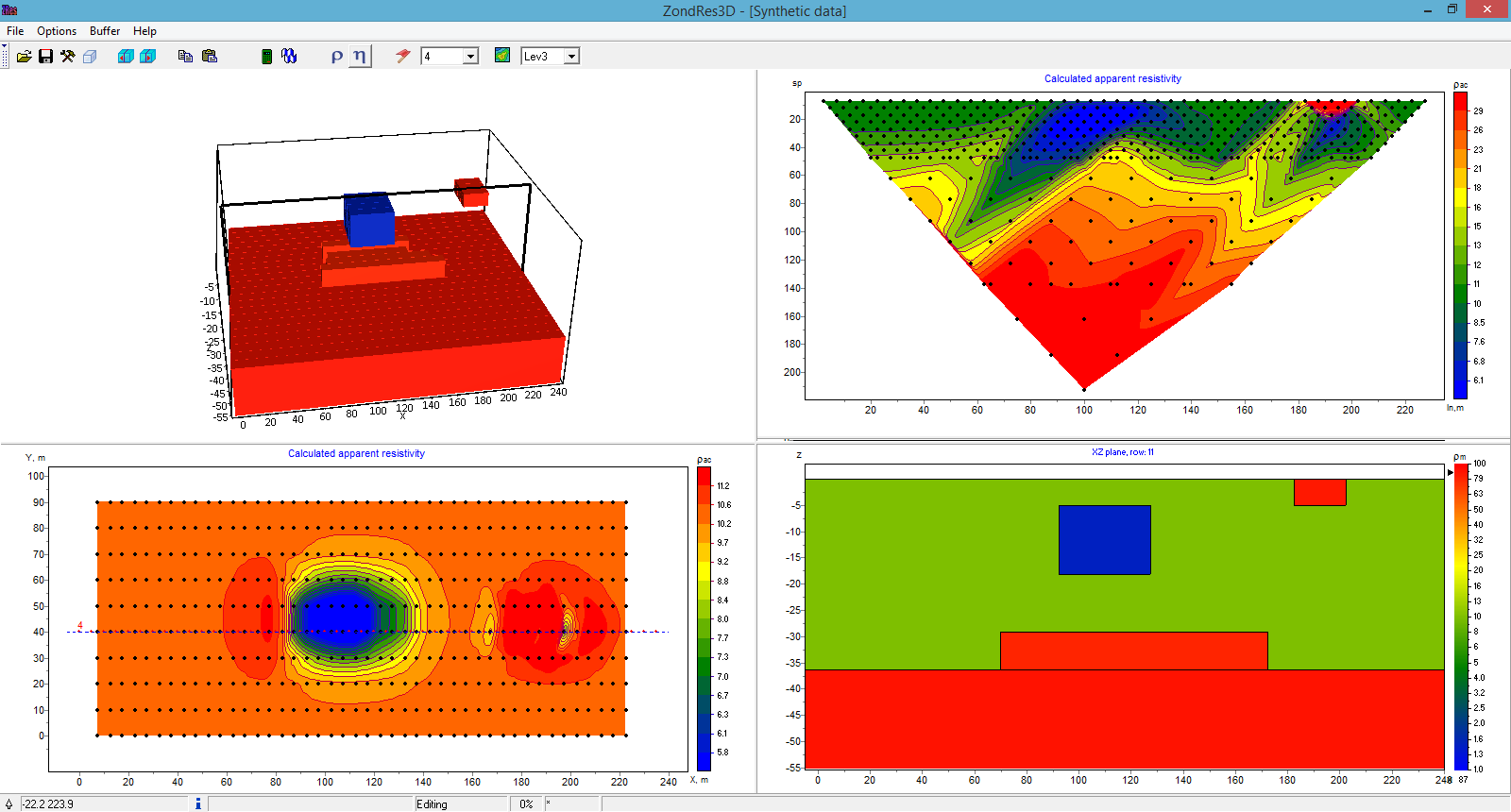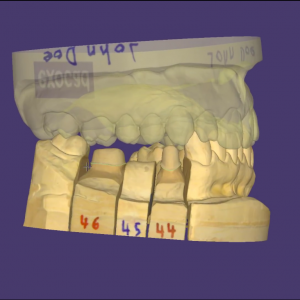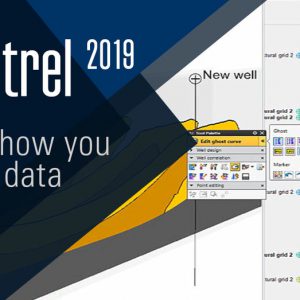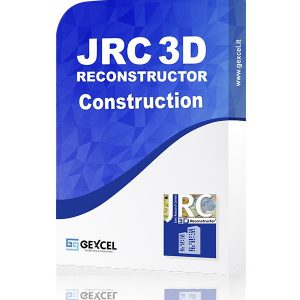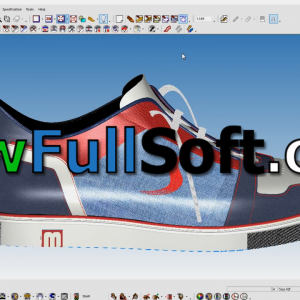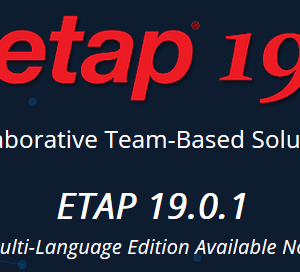$190.00
Software for the interpretation of geophysical data are widespread. Depending on the nature of the application, they encompass many different directions in geophysics. Many of these software are for seismic data interpretation. The ZOND software package is oriented mainly for near surface geophysics.
The package has been developing during the 21st century and includes applications for electric prospecting, seismic, magnetic and gravity surveys. The main focus is on DC and AC resisitivity methods however modules for seismic interpretation are planned for the near future.
Description
Program is designed for three-dimensional interpretation of electrical tomography resistivity and induced polarization data in land, cross-borehole and marine variants. Electrical tomography is a whole technique including the method of field observations and technology of processing and field data interpretation. Its feature is multiple reusing as a source and receiver just the same electrodes position, fixed on a site. Such approach allows from one hand to work with a modern high-performance instruments, and on the other hand to apply effective algorithms of modeling and inversion. For interpretation of electrical tomography data two- and three-dimensional models is used . It significantly extends the range of electric prospecting solved problems due to sections investigating that are considerably different from «classic» horizontal-layered. Resolution and thus interpretation quality of electrical tomography is closely connected with the number and density of measurements on one site. Their number usually reaches first thousand that is why the question on field measurements efficiency has basic importance and in many aspects defines possibility of practical using of this method. Special equipment with programmed automatic switching of electrodes is applied for reaching of maximum effectiveness of field works. The technique of three-dimensional electrical tomography means a special measurement technique with use of a considerable number of switched electrodes (some electric prospecting cables) while number of measurements reaches ten thousand. But in many cases for three-dimensional interpretation it is enough to use the results of two-dimensional electrical tomography received on several parallel profile lines.
Program is its high resource using connected with specificity of the forward and inverse problem solution of big dimension that requires powerful computer. Two methods of solving forward and inverse problem of electric field calculation are realizes in the program – method of finite elements and method of finite differences. The method of finite differences works approximately twice faster, but doesn’t allow use a topography. ZondRes3d represents ready solution for electrical tomography, and solves wide range of problems from mathematical modeling and sensitivity analysis to field data processing and interpretation. Convenient interface and variety of data visualization features allow solve wide range of geological problems with maximum effectiveness. ZondRes3d uses simple and clear data format allowing easily combine various systems of observation, including different variants of the topography setting up and other additional information. The program works with any (applied in electric prospecting) types of electrodes array (two, three and four – electrodes) or their combinations. Well-known data formats are also supported.
Special mode for working with middle gradient array is provided that allows to calculate quickly and visualize data in the form friendly for the interpreter. Some variants of three-dimensional model display in the form of various sections and isosurfaces are realized in the program. Important stage which precede field measurement is mathematical modeling of geoelectric structure of work site. Modeling gives chance to estimate the level of the signal and to make a choice of optimum parameters of the observation system for decision of the set geological problem. ZondRes3d has great range of tools for mathematical modeling and analysis of fields sensitivity of DC and induced polarization. As the general task of the program is inversion for geoelectric section parameters – some variants of inverse problem decision are realized in ZondRes3d; basic of them are: smoothing inversion – to get smooth and focusing – to get piece-smoothed distribution of geoelectric parameters with depth. While working out at the program special attention was paid to a priori data accounting. Because of equivalence of inverse geophysical problems, quality of the obtained results strongly depends on the amount of a priori data used. In ZondRes3d there is possibility of weights setting for measurements, fixing and limits making of changing features of different cells, using of a priori model as major in inversion. The robust schemas of noise estimation are realized in the software. There is also possibility to import and display results of measurements by other methods and cross-boreholes data that improve interpretation results. Basic features:
- 32/64 bit version, number of electrodes/records depends on memory size only.
- Support any electrodes arrays or combinations with arbitrary system of spacings and electrodes positions. The possibility to work with different (number of electrodes) arrays on the same site.
- Measurements at the water surface and the water bottom. Borehole and cross-borehole systems. Any mixed system.
- Two ways for induced polarization inversion. Standard scheme (static IP) and Cole-cole parameters (time and frequency domain). Time-lapse inversion.
- Buffer for 5 models.
- Resistivity and IP data quality control, denoising and editing data module, EM effect removing.
- A set of tools for mathematical modeling of geoelectrical section.
- Several inversion algorithms : smooth, focusing, robust, block. Setting the reference model for the inversion. Suppressing of the noise component during inversion (robust reweighting).
- Setting of limits for models parameters, introduction of a priori geological boundaries and borehole data to inversion.
- Cutting of the model edges by angle.
- Number of variants for data, model and apriori information visualization. Ability to set a semi-transparent background for the resistivity section (geological, seismic sections).
- Borehole columns editor. Titled boreholes.
- Exporting to bitmap and vector graphics formats, excel, surfer, AUTOCAD. Setting the scale of the exported image. Print images and create reports.


